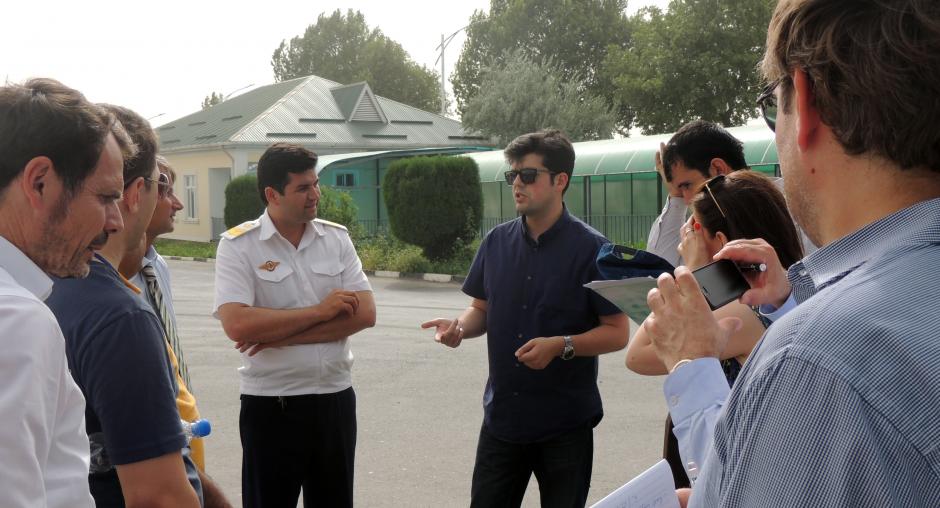OSCE and UNECE join forces in promoting trade facilitation in Central Asia

DUSHANBE, 15 June 2016 – A three-day regional trade facilitation and border management workshop gathering senior trade and customs officials from UN Special Programme for the Economies of Central Asia (SPECA) countries Azerbaijan, Kyrgyzstan, Tajikistan, and Turkmenistan concluded today at the Border Management Staff College in Dushanbe.
The workshop was co-organized by the OSCE Office in Tajikistan, the Office of the Co-ordinator of OSCE Economic and Environmental Activities, and the UN Economic Commission for Europe (UNECE) Trade Division.
“This workshop enabled participants to exchange national experiences and explore the scope for closer co-operation at the regional level. Trade facilitation is a key condition for the economic development of Central Asia,” said Martin Rossmann, Senior Economic and Environmental Officer at the OSCE Office in Tajikistan
The practice-oriented and interactive workshop combined expert presentations, roundtable discussions and group work. It aimed at equipping participants with an array of tools and approaches needed for the simplification and harmonization of procedures for international trade.
Roel Janssens, Economic Adviser at the OSCE Secretariat said: “Landlocked developing countries, in this region, and elsewhere, face higher trade transaction costs due to complexities of multimodal transportation and the multiple border-crossings, transit arrangements and documentation requirements involved. The challenge for countries along Euro-Asian trade corridors is to turn this geographical challenge into an opportunity.”
Particular attention was paid to implementing the WTO Trade Facilitation Agreement in the region; the establishment of National Trade Facilitation Committees; and the development of a roadmap for implementing comprehensive trade facilitation reforms. All of this in support of governments’ efforts to reduce delays at border-crossings and speed up customs clearance, transit, import, and export procedures. Participants also learnt about the development of Authorised Economic Operator programmes and tools aimed at improving inter-agency cooperation both domestically and internationally.
Mario Apostolov, Regional Adviser at the UNECE said: “Trade facilitation is not just a matter of one agency but can only be successful when adopting a ‘whole of government’ approach where customs and border authorities, trade and transport ministries as well as private sector and other relevant actors coordinate their tasks, conduct joint controls and exchange documents and data.”
On the second day of the workshop, the participants paid a study visit to the Tursunzade border crossing-point between Tajikistan and Uzbekistan.
